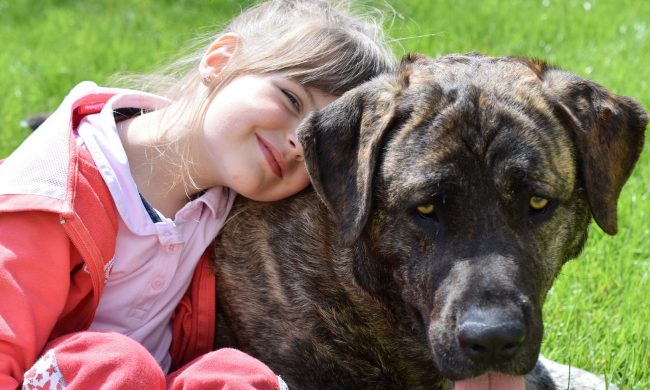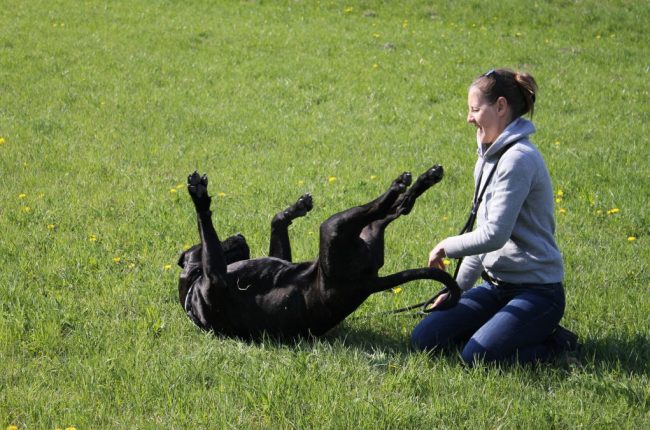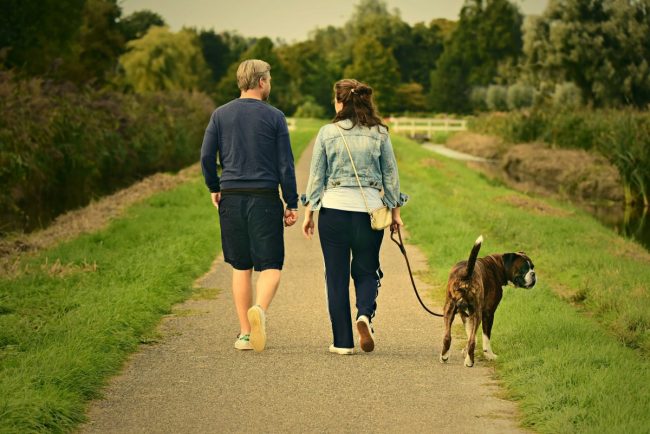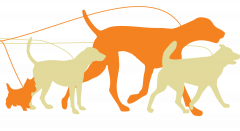
As we live through this uncharted territory all of us are worried about family members including our pets. Veterinary experts advise pet owners that it’s vital to separate fact from fiction when it comes to staying informed about the COVID-19 virus.
We’ve put together some questions and answers to help you better understand how dogs are impacted—and how to keep them healthy—during this pandemic:
Can dogs get the COVID-19 virus and spread it to human family members and other pets?
The Centers for Disease Control and Prevention (CDC), the World Organisation for Animal Health, and the American Veterinary Medical Association (AVMA) have issued advisories saying there’s no evidence at this time that companion animals can spread the COVID-19 virus.
The WSAVA (World Small Animal Veterinary Association) Global Veterinary Community—an association representing more than 200,000 veterinarians—also states that there is no evidence that companion animals can be infected by COVID-19.
On March 13, Idexx Laboratories, a global leader in veterinary diagnostics and software, announced that it had “evaluated thousands of canine and feline specimens during validation of a new veterinary test system for the COVID-19 virus” and saw “no positive results in pets to date of SARS-CoV-2, the coronavirus strain responsible for the coronavirus disease 2019 (COVID-19) respiratory outbreak in humans.
Coronaviruses are a large family of viruses. According to the CDC, some coronaviruses cause cold-like illnesses in people, while others cause illness in certain types of animals, such as cattle, camels, and bats. Some coronaviruses, such as canine and feline coronaviruses, only infect animals and do not infect humans.
“People may get worried when they hear that dogs and cats get coronaviruses, but those are completely unrelated to COVID-19,” said Veterinarian Eric Jon Midlarsky, a member of the AVMA and co-owner of Cornwall Veterinary Hospital. “Dogs and cats are going to be perfectly healthy as regards COVID-19. They are not going to get and transfer the virus to people. I’m not one bit worried about getting anything from my dog- not one bit.”
Does the COVID-19 pandemic change how we interact with our dogs?

People who are not sick with COVID-19 should interact with their dogs as they normally would. That includes practicing the following good hygiene say AVMA experts:
- After handling your pet, or its food or bedding, or cleaning up after your pet (even if you were wearing gloves), thoroughly wash your hands. This is especially important before you eat anything.
- Make sure children know to wash their hands after contact with any animal, or wash your children’s hands for them if they are not able to do it.
- Keep pets healthy by maintaining veterinary check-ups and staying current on vaccinations and deworming and using flea and tick preventatives.
Is it OK to walk our dogs during the pandemic?
While physical and mental exercise is always important for dogs and their families, it’s even more important now when families are dealing with such high levels of stress and anxiety. The new isolation rules and regulations in New York State do allow families to take their dogs for a walk.
If you feel healthy, you should continue to walk your dog daily and always keep your distance from other walkers. Midlarsky also recommends avoiding contact with other dogs. While experts say dogs can’t get COVID-19 they could be in contact with humans who are sick.
According to AVMA experts, COVID-19 might be transmitted if saliva or mucus droplets in a cough or sneeze drops on a surface – including a dog’s coat – and a healthy person then touches that surface and touches his or her mouth, nose or possibly eyes.
Because a dog’s hair is porous and also fibrous, it is very unlikely that you would contract COVID-19 by petting or playing with dogs, but because animals can spread other diseases to people and people can also spread diseases to animals, it’s best to always err on the side of caution say veterinary experts.

Following are additional tips from the American Kennel Club (AKC) when walking your dog in public during the pandemic:
- Observe local ordinances concerning curfews, even if that means adjusting your dog walking schedule.
- Wash your hands thoroughly for at least 20 seconds before and after each walk, and wipe your
dog’s paws before they come back inside. - Consider carrying around a pocket-sized bottle of hand sanitizer to use during your walk if necessary.
- Practice social distancing measures by walking your dog in uncrowded areas when possible.
- If you live in an urban neighborhood, make efforts to take your dog down less-heavily trafficked blocks, or try adjusting walks to less busy times of day and night.
- If you normally take your dog to a dog park or run, it’s best to steer clear of those right now.
What precautions should dog owners take if someone in the home tests positive for COVID-19?
Out of an abundance of caution, AVMA experts recommend that infected individuals take the same common-sense approach when interacting with dogs or other animals as they would when interacting with people. The association offers the following recommendations:
- If you are sick with COVID-19, have another member of your household take care of walking, feeding, and playing with your dog. If you have a service animal or you must care for your pet, then wear a facemask.
- Dogs living with sick individuals should be kept away from other people and animals (quarantined at home), just as people who live with sick individuals must avoid contact with others.
- Don’t share food, kiss, or hug your dog; and wash your hands before and after any contact with your pet or service animal.
- You should not share dishes, drinking glasses, cups, eating utensils, towels, or bedding with other people or pets in your home.
- Make sure you have an emergency kit prepared, with at least two weeks’ worth of your pet’s food and any needed medications. Usually, we think about emergency kits like this in terms of what might be needed for an evacuation, but it’s also good to have one prepared in the case of quarantine or self-isolation when you cannot leave your home.
- If your dog shows symptoms of upper respiratory issues, call a veterinarian.
The Humane Society of the United States urges everyone to have a preparedness plan in place to make sure that pets will be taken care of in case an owner becomes sick or hospitalized.
Are animal hospitals only treating emergencies during the pandemic?
Midlarsky said animal hospitals are not only treating emergencies. It’s important that veterinarians continue to see patients with conditions such as diabetes or heart disease. In addition, he said, veterinarians need to continue providing services that keep pets and their human family members safe. If your dog’s vaccinations are due, have a conversation with your veterinarian to see if you should schedule a visit.
“It’s important to stay current on distemper and rabies vaccinations for dogs and cats,” Midlarsky said. “If this pandemic goes on for three months, we don’t want to take a chance that these vaccinations aren’t current.”
If you are in doubt about the health of your dog, call your animal hospital and ask for guidance.
If you do have to visit an animal hospital, be aware that protocols have changed due to social distancing. At Cornwall Veterinary Hospital clients are asked to call ahead and discuss their pet’s health issues or needs.
“Nobody is allowed in our clinic now except for staff and veterinarians,” Midlarsky said. “We tell clients to text us when they arrive in the parking lot and stay in their cars. We go out to get their pet and we are always wearing gloves when handling pets.”
Information about the COVID-19 virus is constantly changing. You can visit the following websites to find the most current information from medical and veterinary experts:
The Center for Disease Control
The American Veterinary Medical Association
Local animal hospitals are also keeping clients current on what’s happening so be sure to check in online with your dog’s hospital for updates.
Photos courtesy of Pixabay.com
